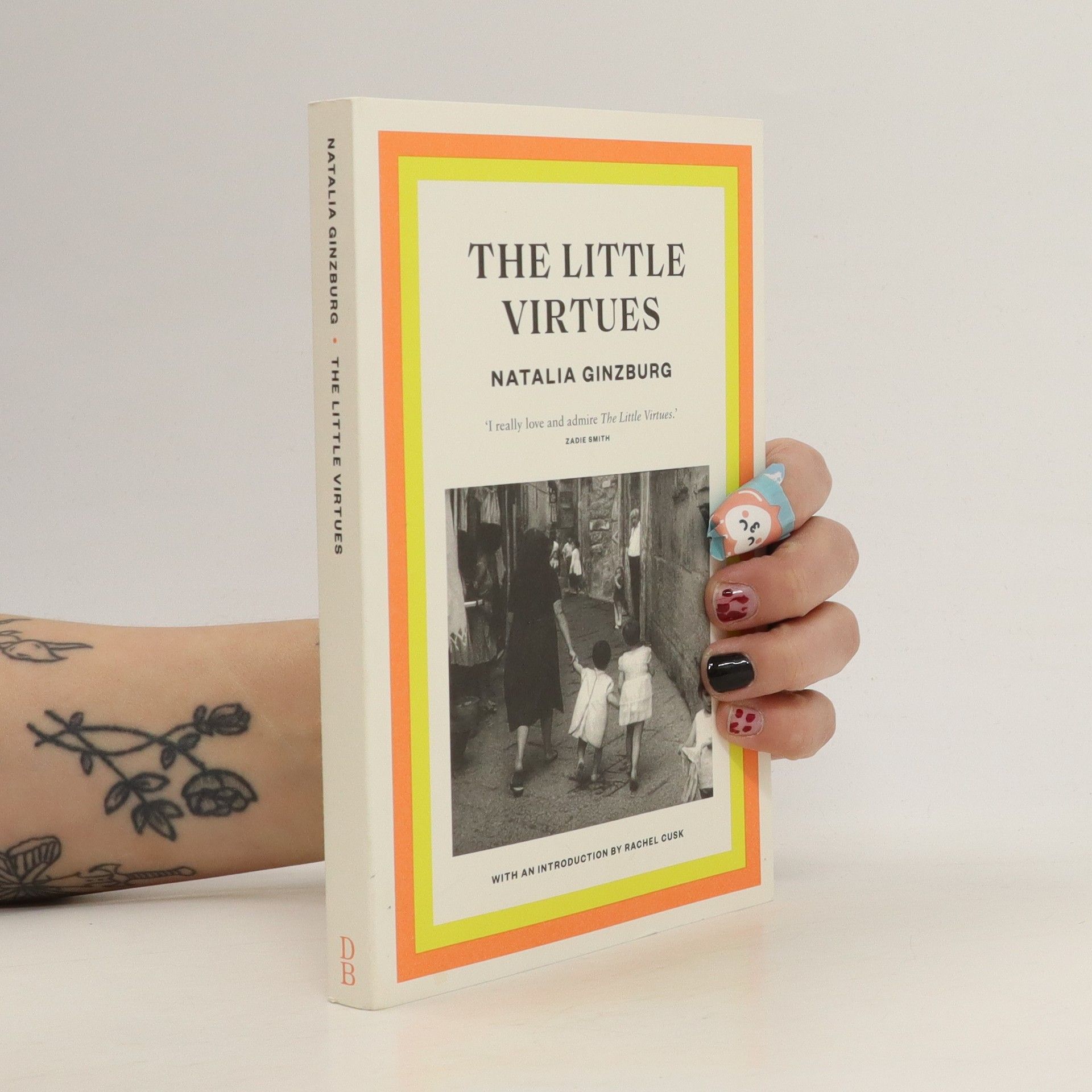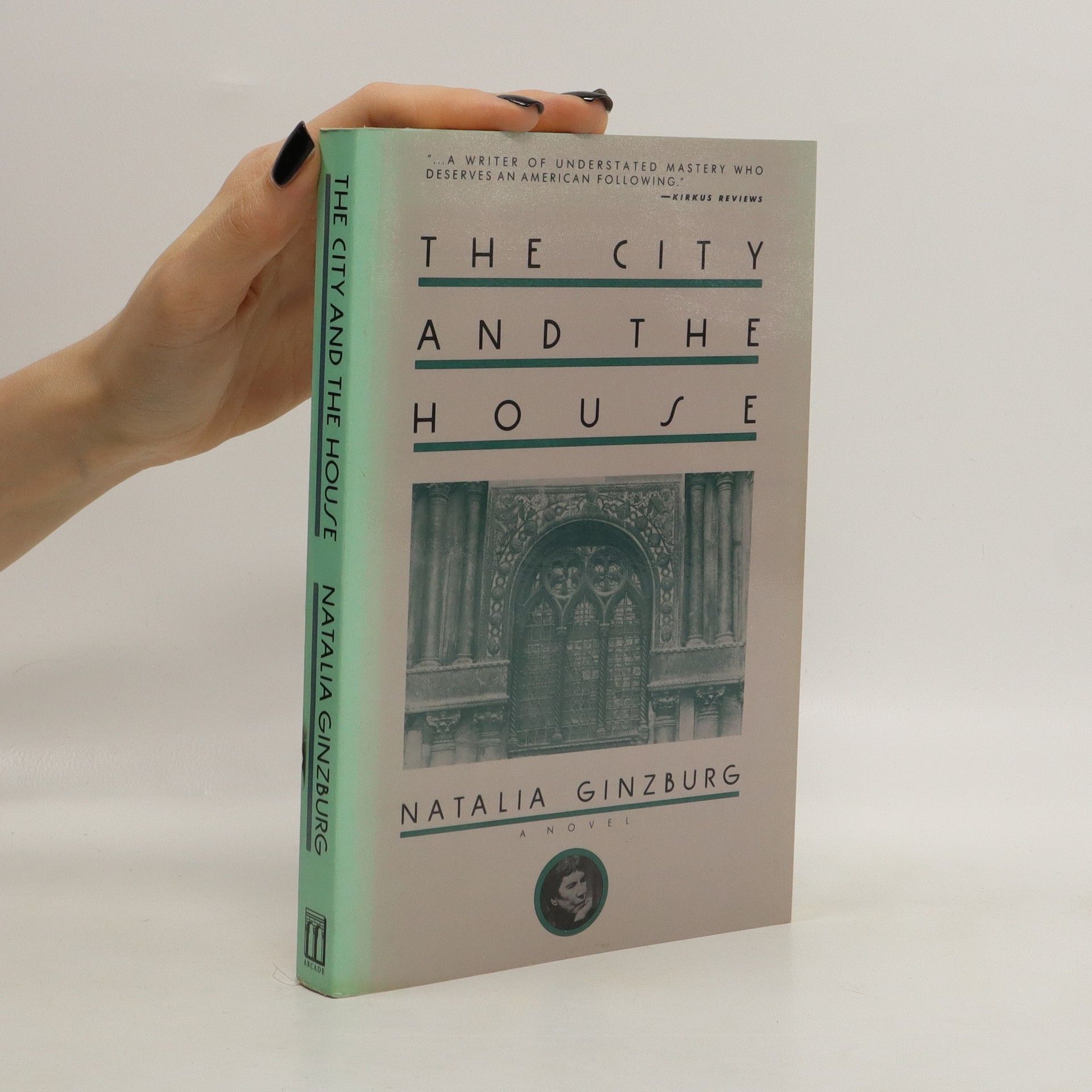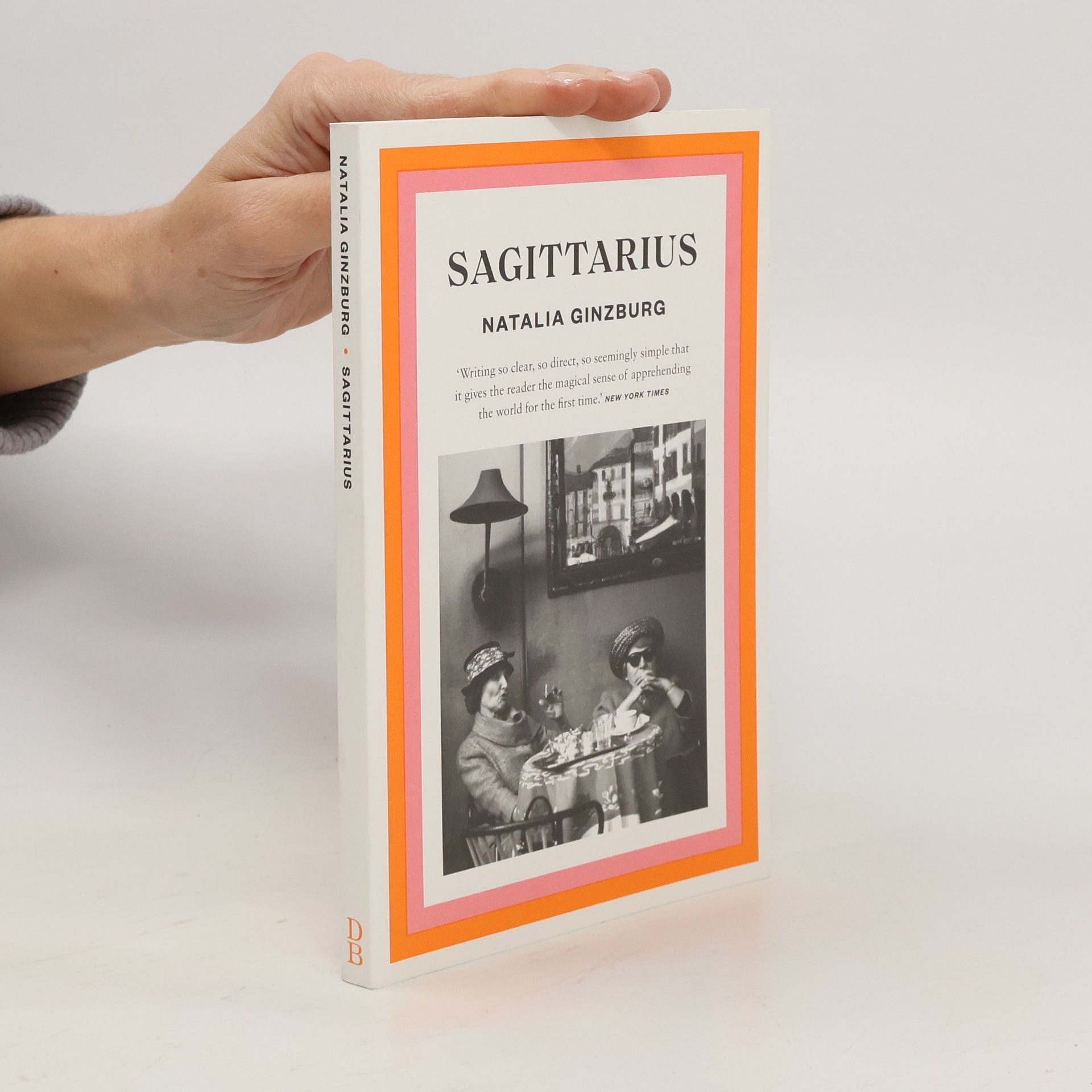'So there is no one to whom I can speak the words that most need to be spoken, about the events which most closely concern our family and what has happened to us; I have to keep them bottled up inside me and there are times when they threaten to choke me.' Valentino is the spoiled child of doting parents who have no doubt he will be 'a man of consequence'. His sisters, however, see him for what he really is: a lazy, indifferent and self-absorbed medical student who whiles away time with nights out on the town, resulting in a string of failed and incomplete classes. His parents' dreams are soon undone when, out of the blue, Valentino brings home Maddalena, a wealthy and strikingly ugly wife. What ensues is yet another work of quiet devastation told with Ginzburg's unflinching moral realism and keen psychological insight, as the family is scandalised by Valentino's decision and suspicious of Maddalena's motives.
Natalia Ginzburg Livres
Natalia Ginzburg était une auteure italienne dont l'œuvre a exploré les relations familiales et le paysage politique de l'ère fasciste et de la Seconde Guerre mondiale. Elle a abordé des questions philosophiques à travers ses romans, nouvelles et essais, obtenant une reconnaissance pour son style distinctif. Sa prose se caractérise par une perspicacité aiguë de la nature humaine et des complexités des liens interpersonnels. Les écrits de Ginzburg continuent de résonner auprès des lecteurs pour leur honnêteté et leurs profondes réflexions sur la vie.







Family and Borghesia
- 120pages
- 5 heures de lecture
Two novellas about domestic life, isolation, and the passing of time by one of the finest Italian writers of the twentieth century. Carmine, an architect, and Ivana, a translator, lived together long ago and even had a child, but the child died, and their relationship fell apart, and Carmine married Ninetta, and their child is Dodò, who Carmine feels is a little dull, and these days Carmine is still spending every evening with Ivana, but Ninetta has nothing to say about that. Family, the first of these two novellas from the 1970s, is an examination, at first comic, then progressively dark, about how time passes and life goes on and people circle around the opportunities they had missed, missing more as they do, until finally time is up. Borghesia, about a widow who keeps acquiring and losing the Siamese cats she hopes will keep her company in her loneliness, explores similar ground, along with the confusions of feeling and domestic life that came with the loosening social strictures of the 1970s. “She remembered saying that there were three things in life you should always refuse,” thinks one of Natalia Ginzburg’s characters, beginning to age out of youth: “Hypocrisy, resignation, and unhappiness. But it was impossible to shield yourself from those three things. Life was full of them and there was no holding them back.”
'At long last she was playing the role she had always dreamt about, that of a mother, full of anxious solicitude, preparing to confide her daughter into the hands of a young man with good intentions, good prospects and a good character.' A mother decides to follow her daughter to the city, she settles in the suburbs with her older daughter and son-in-law in tow. She quickly grows restless and is eager to find new friends. Brassy, bossy and perpetually dissatisfied she strikes up a friendship with the mysterious Scilla, and soon the two women are planning to open an art gallery. But there is more to Scilla than meets the eye. After a series of afternoons spent at bars having coffee granitas with cream, and at Scilla's apartment on Via Tripoli, it quickly becomes apparent that the connections and the cul-tured life promised by Scilla may never materialise, despite always being just within reach. What proceeds is a story of the dissolution of a family, and the role that class plays in its downfall. Sagittarius is the story of misplaced confidence and am-bition gone awry, recounted by a wary daughter.
The city is Rome, the hub of Italian life and culture. The house is Le Margherite, a home where the sprawling cast of The City and the House is welcome. At the center of this lush epistolary novel is Lucrezia, mother of five, and lover of many. Among her lovers—and perhaps the father of one of her children—is Giuseppe. After the sale of Le Margherite, the characters wander aimlessly as if in search of a lost paradise.
The Dry heart
- 112pages
- 4 heures de lecture
The Dry Heart begins and ends with the matter-of-fact pronouncement: “I shot him between the eyes.” As the tale—a plunge into the chilly waters of loneliness, desperation, and bitterness—proceeds, the narrator's murder of her flighty husband takes on a certain logical inevitability. Stripped of any preciousness or sentimentality, Natalia Ginzburg's writing here is white-hot, tempered by rage. She transforms the unhappy tale of an ordinary dull marriage into a rich psychological thriller that seems to beg the question: why don't more wives kill their husbands?
"As far as the education of children is concerned, states Natalia Ginzburg in this collection of her finest and best-known short essays, I think they should be taught not the little virtues but the great ones. Not thrift but generosity and an indifference to money; not caution but courage and a contempt for danger; not shrewdness but frankness and a love of truth; not tact but a love of one's neighbor and self-denial; not a desire for success but a desire to be and to know. Whether she writes of the loss of a friend, Cesare Pavese; or what is inexpugnable of World War II; or the Abruzzi, where she and her first husband lived in forced residence under Fascist rule; or the importance of silence in our society; or her vocation as a writer; or even a pair of worn-out shoes, Ginzburg brings to her reflections the wisdom of a survivor and the spare, wry, and poetically resonant style her readers have come to recognize. A glowing light of modern Italian literature. Ginzburg's magic is the utter simplicity of her prose, suddenly illuminated by one word that makes a lightning streak of a plain phrase"--Publisher's description
The story of the Prodigal Son turned on its head, Happiness as such is an immensely wise and absurdly funny novel-in-letters about complicated families and missed opportunities
Valentino and Sagittarius
- 176pages
- 7 heures de lecture
Two novellas about family life and fraudsters by one of the twentieth century's best Italian novelists. Valentino and Sagittarius are two of Natalia Ginzburg’s most celebrated works: tales of love, hope, and delusion that are full of her characteristic mordant humor, keen psychological insight, and unflinching moral realism. Valentino is the spoiled child of doting parents, who have no doubt that their handsome young son will prove “a man of consequence.” Nothing that Valentino does—his nights out on the town, his failed or incomplete classes—suggests there is any ground for that confidence, and Valentino’s sisters view their parents and brother with a mixture of bitterness, stoicism, and bemusement. Everything becomes that much more confused when, out of the blue, Valentino finds an enterprising, wealthy, and strikingly ugly wife, who undertakes to support not just him but the whole family. Sagittarius is another story of misplaced confidence recounted by a wary daughter, whose mother, a grass widow with time on her hands, moves to the suburbs, eager to find new friends. Brassy, bossy, and perpetually dissatisfied, especially when it comes to her children, she strikes up a friendship with the mysterious Scilla, and soon the two women are planning to open an art gallery. But knowing better than everyone, it turns out, is not that different from knowing nothing at all.
From the author of All Our Yesterdays and The Little Virtues, two novellas chronicling domestic life, isolation and the passing of time.
Natalia Ginzburg wrote her masterful, Strega Prize winning novel Family Lexicon while living in London in the 1960s. Homesick for her big, noisy Italian family, she summoned them in this novel, which is a celebration of the routines and rituals, in-jokes and insults and, above all, the repeated sayings that make up every family. The father, Giuseppe Levi, is a Jewish scientist, consumed by his work and a mania for hiking. Impatient and intractable, he is constantly at odds with his impressionable and wistful wife Lidia - yet he cannot be without her. Together they preside over their five children in a house filled with argument and activity, books and politics, visitors, friends and famous faces. But as their children grow up against the backdrop of Mussolini's Italy, the Levi household must become not only a home - but a stronghold against fascism. Intimate, enchanting and comedic, Family Lexicon is an unforgettable novel about memory, language, and the lasting power that family holds over all of us
